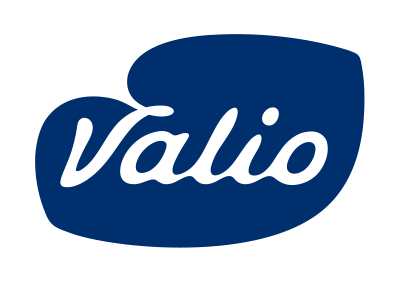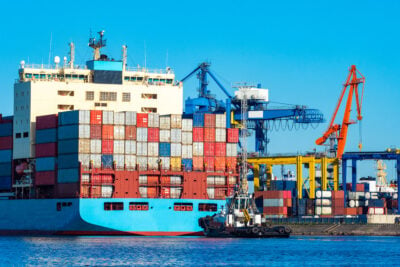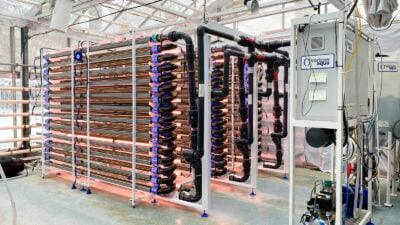Research Theme: Harnessing technology transformation in the food industry

Technology transformation is one of the four research themes of the Food 2.0 project. In this article, we dive deep into this theme and get to know Theme Lead Niina Valkonen. Is data the untapped enabler of sustainable food production?

“Interest in developing industrial processes and doing things better has always drawn me to explore new ideas and different approaches rather than sticking to the established and stable. Perhaps that is why I’ve found myself as the leader of this thematic area, Technology Transformation. The way to go with this one is to be open-minded, look into best practices from other industries and be prepared for wide collaboration”, Niina Valkonen says.
Niina Valkonen has studied biotechnology and food technology and earned her Master’s degree from the Aalto University. Her career steps have taken her from production work at brewery to exploring the possibilities of different raw materials and processes in biofuels, dairy and plant-based products. Lately, her focus has been on emerging technologies like cellular agriculture.
Data – in a People-Centric Manner
In technology transformation of the food system, there are at least three challenges: firstly, the processes that are used are not as efficient as even the current established technology level would allow. Secondly, the understanding of latest technologies is not deep in the food industry. Thirdly, the food industry faces growing data demands.
“We still do a lot of unnecessary manual work, use energy inefficiently and battle with unconnected systems. There are not many expert in this business who can tell the difference between unbacked tech hype and the genuinely potential and to-be-taken-seriously new tech. We don’t need to be a fore runner in all areas, but we need to identify potential ones to achieve competitive advantage, and in some cases the inevitable development that is needed in order to stay in business. We also need to find ways to utilize AI-based solutions that run on massive amounts of data”, says Niina Valkonen.
To take the next development leap, we need to keep in mind that when renewing the food production processes, changing one bit affects the whole system. That is why the way people work also change – and people are needed as change agents. In a concrete personal level people might go from physically demanding work, or repetitive manual work to working with data and people. Technology transformation is about designing new job descriptions and updating people’s skills, too.
Additional brain power available
Currently, Niina and her colleagues are experimenting with for example AI, machine vision and advanced data modeling. The goal is first learn and then expand the learnings to several areas of application.
“Our R&D staff is super talented and we could take the next development leap by utilizing systematic data collection and AI. Their role is one of additional brain power with greater data processing capabilities than the human brain. One future scenario is having digital twins of our laboratory and production lines. A researcher or a product developer could test their hypotheses or tweak product recipes or process conditions in the virtual environment first and only then go to the more resource-consuming tests in real laboratory and production line”, Niina Valkonen describes.
Another stream of R&D activities in Niina’s theme is dedicated to cell agriculture. While there is no magic pill that will solve all of the challenges that our food system faces, cell agriculture is part of the sustainable food system of the future and will provide some of the food that is needed to feed everyone globally. It is the puzzle piece that enables us to convert some of the side streams into food. There is also potential for improving sustainability and self-sufficiency.
“We at Valio follow the development of cell agriculture closely and collaborate with businesses and researchers in this field”, Niina Valkonen concludes.
The Technology Transformation work areas
- Digital twins of processes, farms, virtual laboratory
- Data driven process improvements in factories and R&D
- Cellular agriculture research, emerging processes
- Personalization, nutritional data




